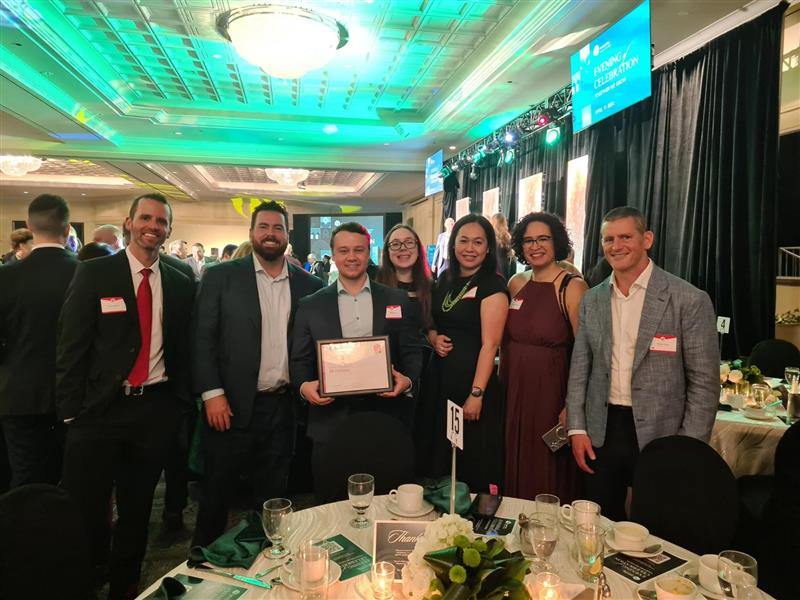The fountain of youth may be a myth, but the secret to smart aging is not. Silver Sherpa, a lifestyle transitions company, assesses the lifestyle transition needs of seniors and then coordinates professionals and services to help them simplify important life decisions, figure out pragmatic costed options, and facilitate their plans.
Co-founder Susan Hyatt is an international healthcare expert and corporate strategist who was working abroad when both of her elderly parents went into health crises. Through this experience, Susan saw the critical need for a professional services firm to provide comprehensive, “big picture” assistance for seniors and their families when they were in crisis and faced with major lifestyle transition issues.
Silver Sherpa is a lifestyle transitions company. What made you decide to develop a business dedicated to this type of work?
I was running a global strategy corporation and working in London, England when both my parents went into crisis at the same time. My mother was in a small town, Leamington (home of the Ketchup Wars) and my dad was living in Parry Sound. No matter what I did, no matter who I called, I couldn’t manage to get my parents (both of whom were in the hospital) the assistance they needed so they could go back to their own homes. Everyone I spoke to in the healthcare community said the same thing to me, “Sue, the system is broken, it’s fragmented, and we don’t know what to do with seniors coming out of hospital.”
It was then I realized that the system was in gridlock. If you have a family member in the hospital and they need to be discharged, but they can’t go back to their home, you have a problem. There is no one to coordinate across the silos. That was the genesis of Silver Sherpa.
I hadn’t looked at the system here in about ten years. I was thrown back into it with two parents in two different cities, (albeit smaller centres). Even in Toronto, I saw the same thing. The more I thought about it, the more I realized that we cannot cope like this in the future (this was four years ago). So I sat down and looked at the problem — that the health care system is all in silos, and none of the silos talk to each other. What we don’t realize as Canadians is that there is no coordinated system to help our seniors make difficult transitions. It’s a combination of factors, and this is what Silver Sherpa is all about.
What Silver Sherpa did was create a solution. We went around to twenty-two different countries and asked them to send us all their evidence-based research on what smart, healthy, reasonable aging is and what factors contribute to it. We spent six months going through the data and then at the end of the day we created an assessment tool to address the different issues seniors deal with i.e. what’s the plan for the future? How are we going to get mom or dad to stay in the “village”? This isn’t rocket science! You need a plan, and you need a sane way to get a plan. The family and senior needs to understand the plan and it’s the seniors’ plan (not the son or daughters’). From there, Silver Sherpa helps navigate the plan and connect all the dots. Plan, navigate and connect.
We help individuals and families manage through the chaos. For instance, did you know that at age sixty-five, twenty-five percent of seniors have three or more chronic diseases? And that percentage increases with age. That translates into three specialists for a quarter of all seniors. As a daughter or son, you could be going to six specialist appointments to find out what’s wrong with mom or dad. The problem in the health care world is that they are all working in their own silo, and no one looks at the whole picture across the silos. That’s a lot of the coordination that we (Silver Sherpa) do.
For example, if mom needs additional care after a health crisis you need to figure out who will provide it. The Community Care Access Centre (CCAC) may give you a few hours or less a week. If you require more, and you have to go to work, then you are forced to look into private home care. It is extremely costly, a twenty-five dollar an hour minimum for a Personal Support Worker (PSW), with a minimum of three to four hours a day, depending on the company. So you are looking at least seventy-five dollars a day to get your mom a shower and some personal care. That adds up.
Let’s say mom can’t go home; the hospital will get a discharge planner involved to have papers drawn up for long-term care. Long-term care has a three to four and a half year waitlist in this region. That’s not very helpful. Most people can’t quit their jobs to look after their parents. So then you have to look at alternatives and there are alternatives. But do you have the time and expertise to research these options and make cost comparisons?
At this point, you have to go back to your parent’s financial planner to see if this is all feasible. In the incident where the senior is confused and no longer able to make decisions, you have to go to the Power of Attorney, perhaps the daughter or son. Then you have to deal with family dynamics. In some families, it’s like herding cats! Many times you find out the legal work is not in order i.e. the Power of Attorney. Also, in a lot of families, it’s a secret — you don’t find out who the Power of Attorney is until the senior goes into crisis.
Sue, you’ve worked in many parts of the world. Does your international experience impact how you operate Silver Sherpa?
Some of the experience I brought to Silver Sherpa is from the individual countries themselves and how they approach aging. In Japan, the concept of smart aging was created over a decade ago. Japan has one of the most rapidly aging populations on the globe. They are dealing with these problems ten to fifteen years earlier than we are. They created the idea that smart aging is healthy, active, being engaged, having a purpose and has limitless boundaries. Culturally, they have a tradition of looking after their family members in their village. The idea of the “village” stayed with me, the idea that people don’t want to move more than five to ten kilometres from their home when they think of retiring. We often see kids coming in and taking their parents out of their community to care for them. When the senior is taken away from their community, they are also taken away from their connections. That’s when you often see a senior’s health decline. As well, you might see more financial and elder abuse because the senior is isolated. We work with the Halton Regional Police and collaborate with them on awareness of elder abuse and cyber scams. Social isolation is when the risk factors start to go up.
We want our seniors to stay and be supported in their “village”. They might not stay in their home if it has stairs or they can’t manage it anymore but whenever possible, we like to keep them in that five-kilometre radius. This could mean an apartment, a retirement residence or assisted living community. We know there’s evidence that there is less risk to the senior if they are co-housing in a “village” community. In Singapore, they have created a different concept. Singapore is a very tiny island with a lot of people on it and a plethora of condos. What I found unique is that on the ground floor of these high rises are seniors playing instruments, doing Tai Chi and every morning is a community gathering. As well, there is a daycare on the ground floor, and it’s free. The families live in the condo buildings, and the grandparents live in the same building. Grandma and grandpa are in the building and run the daycare that the kids go to on the ground floor. Now grandma and grandpa have a purpose in life. They take great pride in their daycare because this is their extended family and they are going to raise their grandchildren right. And guess who else is on the ground floor? A nurse practitioner or a community nurse is there; the kids get their shots, and if grandpa isn’t feeling well, then he goes to see the nurse. Nobody pays any fees; it’s all paid for as a public health activity. There is a traditional Chinese Medicine Herbalist, a dry cleaner, washing group, and grocer all on the ground floor. It can’t be more convenient, and you have this big extended family working as one. Seniors looking out for each other, seniors looking out for children and children looking out for seniors.
What happens in Canada is we get hung up on the private versus public system. If someone is on a long term care waitlist for four years, is that serving the senior? Today’s reality is that families end up blending public services and private services in order to cope. Our publicly funded systems can only provide a small basket of community services to support seniors who need help to stay in their community.
When I created Silver Sherpa, I knew I wanted this company to give back to the community. What I observed around the world is that successful companies are very focused on giving back to their communities. We saw an opportunity to do this by connecting generations. We teamed up with Cyber Seniors, and I am an International Ambassador with them. We show their film, (which was made in Toronto), that took a group of high school students into a senior residence to teach them how to use technology. It’s wonderful! As well, we partnered with Big Brothers and Big Sisters of Halton (BBBS). Each time a company or individual makes a referral to us, and they become a client; we make a donation back to BBBS. They want to work with us because we know seniors who feel they don’t have a purpose in life or they may be depressed, but they could be working with BBBS. They could be giving hours to the kids. These kids often don’t have a lot of people they can trust in their lives but they would love to have a grandma or grandpa. What are the key elements to starting and running a successful business?
What do you believe are the key characteristics to your success?
A clear business plan with key performance indicators for the business, as well as having a dashboard. Every week I’m looking at dashboards, how many sales, how many “villages” are we operating in, are we getting more adult children or seniors asking for services? In business today, I find that people have a lot of difficulty staying focused. Create a plan, focus on the plan and then execute it. People aren’t digging deep to deliver but instead many seek immediate gratification and desire the quick win. To be a successful entrepreneur, you must establish a business by building strong long term relationships.
The next thing is communication. Communicate your plans across the entire organization and target those KPIs. Communication is a lost art inside a lot of companies. Sometimes we are dealing with one side of the organization in a complicated scenario, and the other side doesn’t know what they are doing. Communication to us is critical – with our clients, their families, within the company and with our external partners.
Finally, hold people accountable for delivery. There is the dashboard of key performance indicators, and somebody’s not meeting their targets, but nobody holds them accountable. What this means is calling each other out, and acknowledging that you didn’t meet your goals. Therefore, we all didn’t meet our goals, and how are we going to change this for next quarter?
In one word characterize your life as an entrepreneur.
Inspiring. You need internal inspiration to do something like this.
What do I need most of all to be a successful employee at your company?
Passion, you want to make a difference (every single day), you have a love for seniors and are a team player.
What did you wish you had known before you started your business?
Do you know what shocked me about this business? How much education you have to do pre-sale to both the client and their families. There has been a time delay on targets that I thought we could meet. The key for us is pre-qualification. We have two markets, the adult children and the senior themselves (eighty plus), but they’re the ‘not-yets’. They always say to us, “we love you, but not yet. When I break my hip, I’ll call you.” The adult children are the ones who are buying and are encouraging their parents to buy. I underestimated how much you need to educate people; it’s a new product, a new service.
For more information on Silver Sherpa or to contact Sue Hyatt, please click here.



